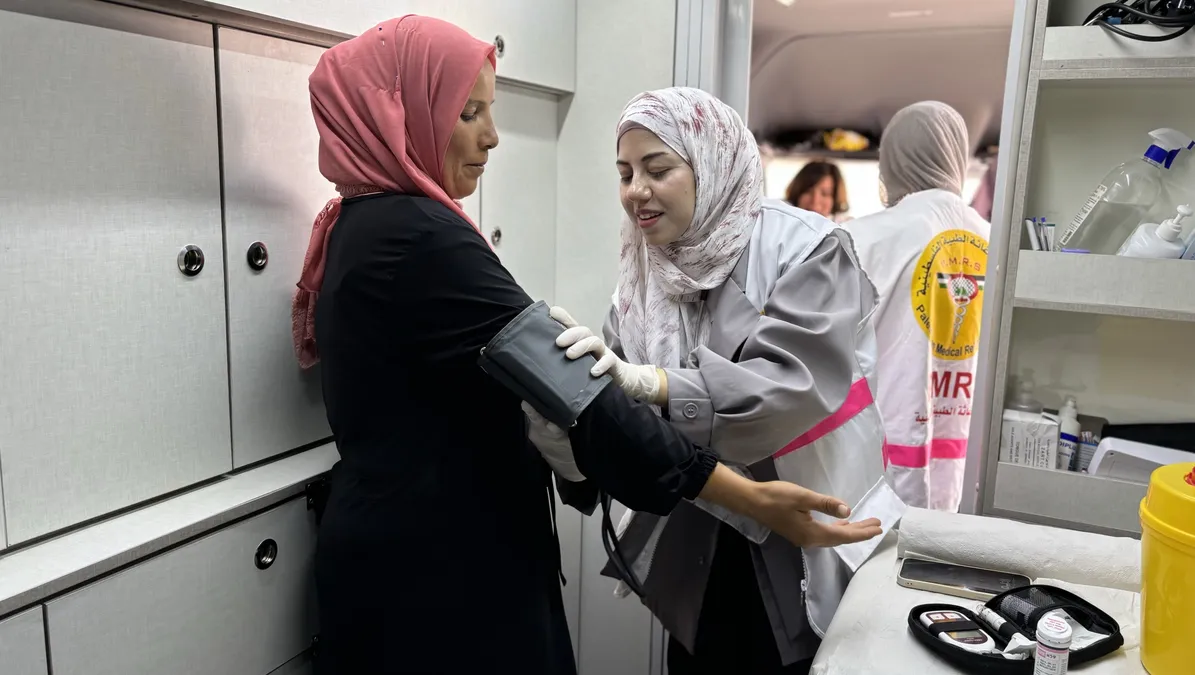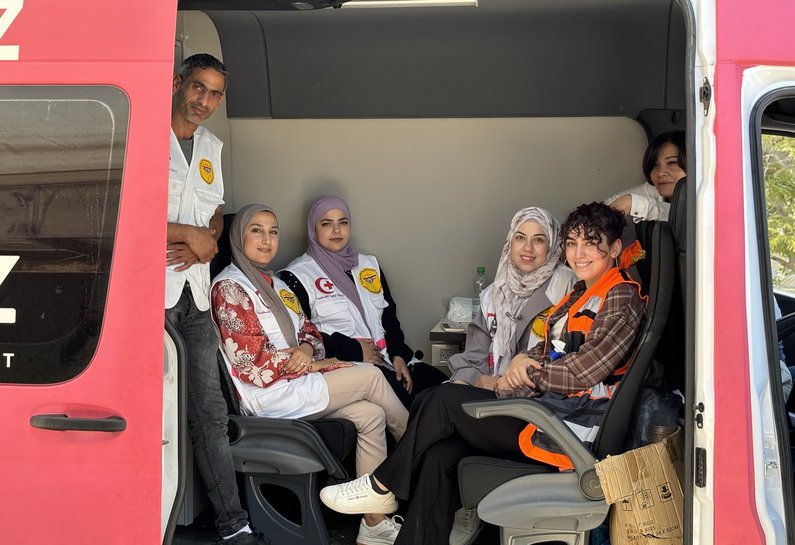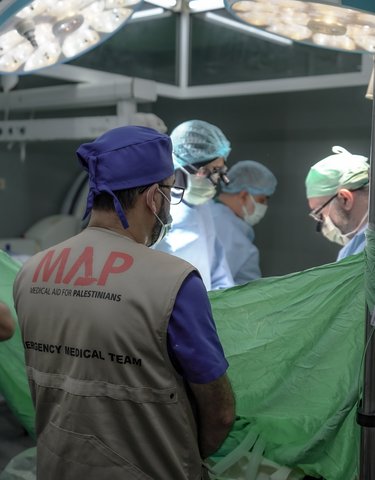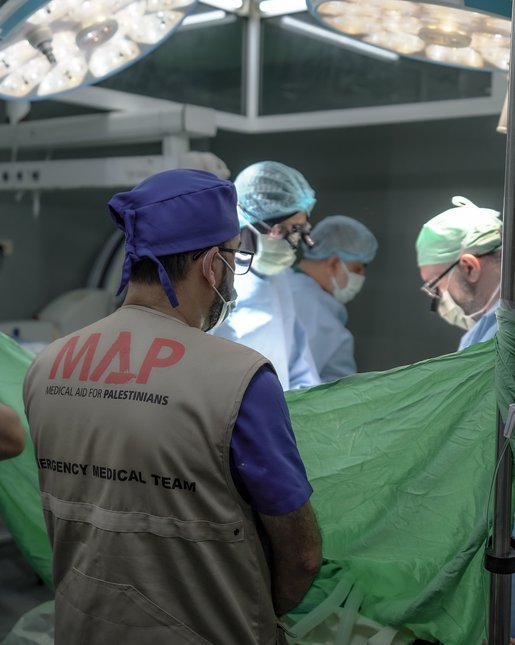“My children sleep with their shoes on to be prepared for attacks”: MAP’s mobile clinic supports community under constant threat
18 July 2024


The community has faced constant attacks over the past nine months. Hanan’s neighbours were forced to flee their homes because of the insecurity. Shortly after, settlers set their house on fire, leaving them with nowhere to return to. “We have completely lost our sense of safety,” says Hanan.
Trefat is in Area C of the West Bank, 60% of the land that remains under full Israeli military and civil control. Israel’s military occupation and discriminatory policies mean that there are no permanent healthcare facilities for Palestinians in Area C, while movement restrictions – such as checkpoints and roadblocks – obstruct access to clinics and hospitals in other areas.
“Since the war on Gaza, accessing our community has become nearly impossible due to road closures and violent settler attacks,” says Mariam, another resident. “Settlers are even preventing us from accessing water! Plants and livestock have become their new targets lately. If this continues, our ability to survive will be at risk.”
On 6 July, the UN Human Rights Office voiced its “grave concern” over a situation where settlers, “acting with the protection and support” of Israeli forces, are “escalating violent attacks on herding communities in the South Hebron Hills, Jordan Valley, and East Jerusalem that have been encircled by settlements and outposts.”
With the Trefat community now largely unable to reach basic healthcare services in the nearby city of Jericho, health needs are increasing. Medical Aid for Palestinians (MAP)’s mobile clinics, run by the Palestinian Medical Relief Society (PMRS), are responding by providing essential medical and psychosocial services to people in Trefat, and 22 other Bedouin communities and remote villages in the Jordan Valley, East Jerusalem Governorate and the south of Hebron.

“The mobile clinic team has been incredibly supportive”
The mobile clinic team visit Trefat once a week, but they have faced their own hurdles such as road closures and being targeted by Israeli settlers. This week’s visit was postponed due to a road closure. “We know there is an alternative route, but it’s not suitable for all vehicles, and I won’t risk damaging the mobile clinic resulting in depriving other communities from healthcare services,” says Sameer, driver of the mobile clinic and first responder at PMRS. There is an alternative route, but it is extremely dangerous and prone to violent settler attacks.
Since October 2023, the mobile clinic has been unable to reach the Bedouin communities of Ka’abneh and Ararah in Wadi Qilt, in the Jordan Valley, due to a permanently closed electronic gate controlled by Israeli authorities. Both communities are home to more than 200 people who are now being prevented from accessing essential healthcare.
As well as denying Palestinians healthcare in Area C, Israeli settlement expansion is soaring. Earlier this month, Israeli authorities approved the expropriation of 12.7 square kilometres of land in the Jordan Valley, the largest such single land grab since the 1993 Oslo Accords.
Rida Hussein, a mental health and psychosocial support specialist with the mobile clinic, noticed a marked increase in mental health issues among community members, particularly children, since the war on Gaza and subsequent rising settler violence. “Cases of anxiety, insomnia, and behavioural disorders like ADHD have escalated following the start of the war, as well as cases of urinary incontinence affecting girls aged 12-14 years,” she says.
Rida provides sketchbooks and art supplies to engage children in activities aimed at facilitating their emotional expression, emphasising the therapeutic role of creative activities in helping children cope with trauma, despite the ongoing challenges in accessing healthcare.
The mobile clinic also offers regular home check-ups to those who cannot reach the clinic, such as children experiencing mental health issues or people with disabilities. “The mobile clinic team has been incredibly supportive. My son, who has a disability and is unable to walk or talk, receives regular home visits from them. They even provided him with a special bed, mattress, and fan, which have greatly improved his comfort and wellbeing” says Mariam, a mother of a 17-year-old boy.
Despite the difficulties and persistent settler attacks, MAP’s mobile clinics have demonstrated resilience in providing critical healthcare services. The project not only addresses immediate medical needs but also fosters health awareness and first aid training within these communities. Through the mobile clinics, MAP upholds its commitment to supporting the health and dignity of Palestinians despite the challenges imposed by Israel’s military occupation.
Please donate to MAP to help continue the vital work of the mobile clinics in the West Bank.
Top photo: A PMRS first responder provides healthcare to a resident of the Trefat community. (Credit: Fayez Kawamleh / MAP).

